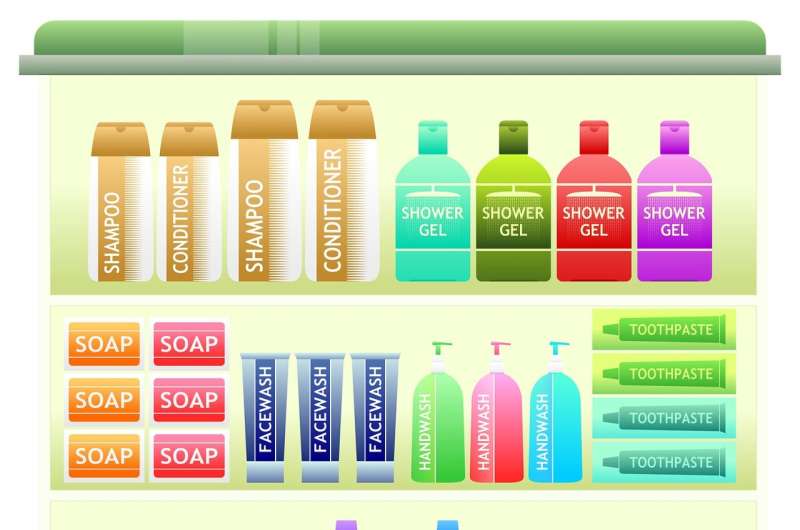Study finds association between elevated phthalate levels and increased risk of postpartum depression

In a new study from the NIH's Environmental influences on Child Health Outcomes (ECHO) Program, higher prenatal phthalate levels were associated with a slightly increased risk of postpartum depression.
Postpartum depression affects up to 20% of new mothers, making it the most common pregnancy complication to occur after delivery.
ECHO Cohort researchers wanted to examine how chemicals such as phenols, phthalates, and parabens—commonly found in plastics and personal care products—might play a role in postpartum depression symptoms, alongside other factors like genetics and stress. Exposure to these chemicals can affect hormone levels, potentially influencing the development of postpartum depression.
This collaborative research, which is believed to be the largest study to date examining the effects of environmental chemicals on depression, is published in JAMA Psychiatry.
The presence of these man-made chemicals in people is common due to frequent exposure through diet, absorption through the skin, and inhalation. Researchers noted that among study participants all had parabens and nearly all had phthalates in their urine samples.
"Finding new ways to prevent postpartum depression is crucial because most of the known risk factors, like genetics and stressful life events, can't be altered," said Melanie Jacobson, Ph.D., MPH of New York University's Grossman School of Medicine. "Therefore, focusing on prenatal exposure to these types of chemicals represents a novel interventional target."
Researchers measured the concentrations of these chemicals in urine samples of 2,174 pregnant individuals at five ECHO Cohort Study Sites. Those same individuals also completed depression assessments between two weeks and 12 months after delivery to check for postpartum depression symptoms.
Screening instruments indicated the presence or absence of postnatal depressive symptoms. Researchers then harmonized data to the Patient-Reported Measurement Information System (PROMIS) Depression scale.
The study found that higher levels of phthalates, in particular those found in products such as personal care items and plastic consumer products, were associated with an increased risk of postpartum depression. Those who met the criteria for postpartum depression were more likely to be Hispanic and from the ECHO study site in Puerto Rico, have attained less education, and substantially higher prenatal depression scores.
More information: Melanie H. Jacobson et al, Prenatal Exposure to Nonpersistent Environmental Chemicals and Postpartum Depression, JAMA Psychiatry (2023). DOI: 10.1001/jamapsychiatry.2023.3542
Journal information: JAMA Psychiatry
Provided by National Institutes of Health
Exposure to harmful chemicals in plastic may contribute to postpartum depression
No comments:
Post a Comment